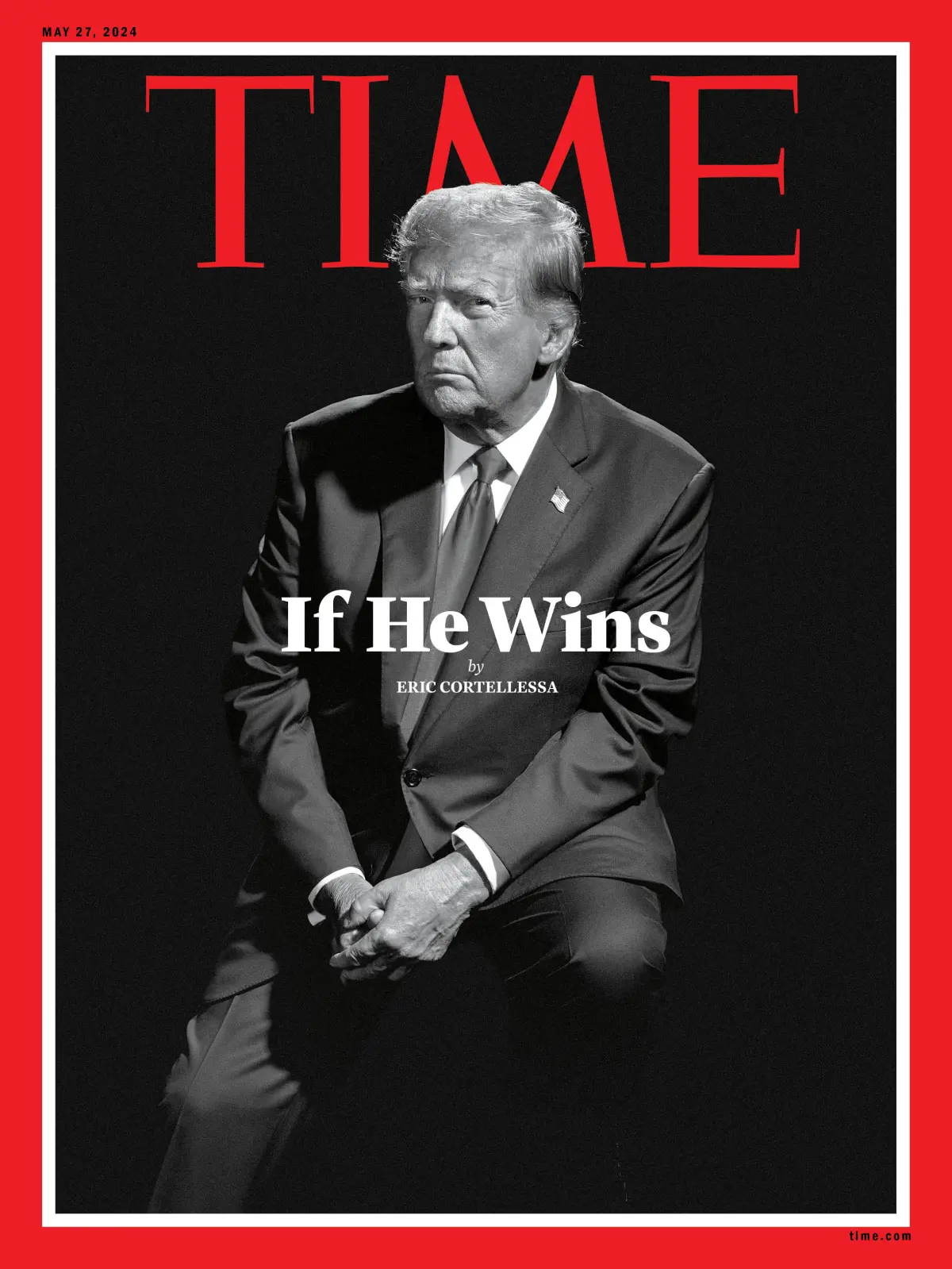This week’s Time magazine interview with Donald Trump, masterfully conducted by Eric Cortellessa (who doubles as a Washington Monthly contributing editor), is chillingly illuminating on many levels. Yet, for the most part, Trump reiterated or sharpened positions previously articulated, such as consideration for pardoning January 6th insurrections, acceptance of extreme abortion restrictions at the state level, and support for a reboot of Dwight D. Eisenhower’s mass immigrant deportations.
On one subject, however, Trump offered a shift in his thinking.
Asked if the “outcome of that war between Israel and Hamas should be a two-state solution,” Trump replied, “Most people thought it was going to be a two-state solution. I’m not sure a two-state solution anymore is gonna work.”
He noted, “There was a time when I thought two states could work. Now I think two states is going to be very, very tough,” because, “You had a lot of people that liked the idea four years ago. Today, you have far fewer people that like that idea.”
He relayed the sentiment of the deceased Republican megadonor Sheldon Adelson, “who felt that it was impossible to make a deal because the level of hatred was so great.” Asked if he now shared that sentiment, Trump said, “I disagreed with it. But so far, he hasn’t been wrong.”
These comments don’t leap off the page as much as others, such as “It’s irrelevant whether I’m comfortable or not” with states prosecuting women for abortion. Or regarding mass deportations, “I think the National Guard would be able to do that. If they weren’t able to, then I’d use the military.”
After all, Trump’s analysis isn’t wrong. Achieving a two-state solution now would be very, very tough.
But Trump isn’t running to be a foreign policy analyst. He’s running to be president of the United States of America. A president sets foreign policy priorities, which impact international actors. If a president states or suggests that a two-state solution is out, then all Middle Eastern actors are incentivized to pursue their preferred one-state solution, most likely through violence since there’s nothing to negotiate. Israel will not go to the bargaining table to pursue the dismantlement of the Jewish state any more than the Palestinian Authority, or the Saudis will meet to discuss an Israel that includes all territories from the river to the sea.
Since the Oslo Accords, every American president has openly supported a two-state solution. And that includes Trump, if only barely.
Early in his presidency, Trump undermined the peace process by recognizing Jerusalem as Israel’s capital and, per that decision, relocated the United States embassy. The New York Times reported that Palestinian leaders were “not on speaking terms with the Trump administration.” Nevertheless, Arab and Gulf States pursued a separate peace with Israel. In early 2020, Trump proposed what he deemed “a realistic two-state solution,” albeit with borders heavily favoring Israel’s interests.
The plan never stood a chance of winning support among Palestinians or in the wider Arab world. But Trump, who fancies himself as the consummate dealmaker, seemed to believe in it. He got upset with Israeli Prime Minister Benjamin Netanyahu for attempting to annex parts of the West Bank and Jordan Valley after making his proposal and successfully pressured the Likud Party leader to abandon it. Trump later lamented to a reporter, “I don’t think Bibi ever wanted to make peace.”
Trump no longer sounds interested in any sort of two-state solution, in stark contrast to Joe Biden, who consistently emphasizes the importance of renewing a diplomatic process that leads to a two-state solution and ends the persistent cycle of violence.
“The only real solution is a two-state solution over time … There is no other path that guarantees Israel’s security and democracy,” declared Biden in his most recent State of the Union address.
Without work on a two-state solution, what remains for the parties to pursue are one-state solutions, and violence is endemic to one-state solutions, as we have seen in the Middle East for the last 75 years.
One-state supporters do not readily cop to this. Nine years ago, Netanyahu pledged never to allow an independent Palestinian state. Months before the October 7 attack, he told CNN, “When effectively the Arab-Israeli conflict [comes] to an end, I think we’ll circle back to the Palestinians and get a workable peace with the Palestinians … I’m certainly willing to have them have all the powers that they need to govern themselves. But none of the powers that could threaten [us], and this means that Israel should have the overriding security responsibility.” Of course, for Israel to retain security responsibilities would leave Palestinians lacking independence, which he claims he would achieve with a “workable peace” agreement.
Netanyahu was trying to achieve that one-state vision by pursuing peace agreements with existing Arab states while pacifying Hamas with billions in payments from Qatar. It didn’t work, as October 7 showed.
Many protestors of Israel’s military response to the Hamas attack are anti-Zionist, which, by definition, means they support the end of Israel as a Jewish state. As Josh Marshall wrote at Talking Points Memo, “This is sometimes talked about as though this is envisioned without people actually being killed at a mass scale or under the pretense that Jewish Israelis have other home countries they can relocate to. But that’s not how overthrowing a whole society works.” October 7 showed that, too.
More bloodshed awaits if one-state solutions are all that is left on the table.
An omnipotent president who will immediately resolve a 75-year conflict does not exist. For those who want to see Israel and Hamas continue to wage war over who imposes a one-state solution, the pessimistic Trump is your most appealing option.
Biden’s management of the United States’s relationship with Israel is not immune to criticism. But for those who believe only a two-state solution can provide lasting peace, however elusive it may be, the aspirational Biden is the only choice.



